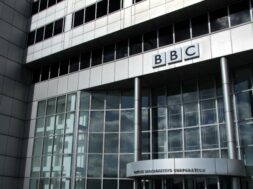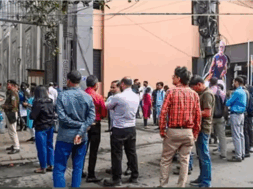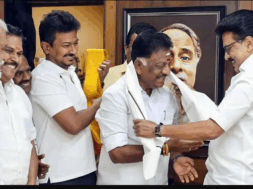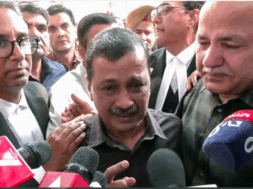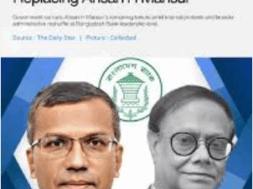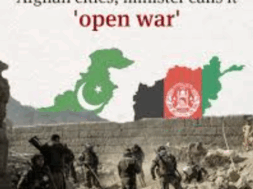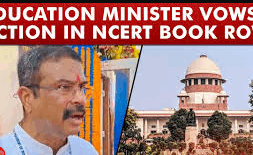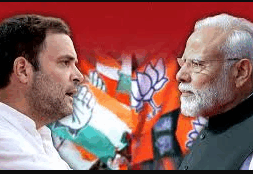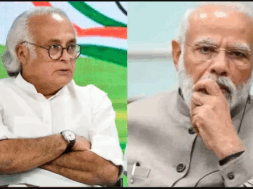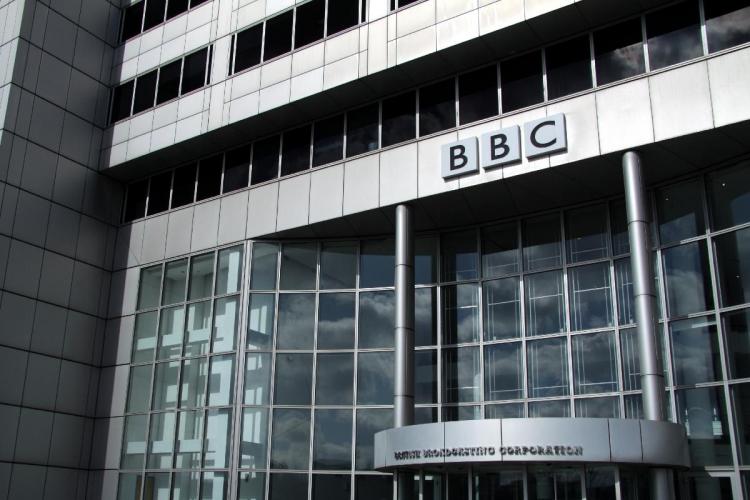
Fallout of Controversial Documentary on Modi: IT Officials Conduct “Survey” of BBC Offices in India
Manas Dasgupta
NEW DELHI, Feb 14: Within days of the BBC airing a two-part documentary critical of the prime minister Narendra Modi and his handling of the 2002 Gujarat riots when he was the chief minister of his home state, income tax officials were all over the BBC offices in Delhi and Mumbai on Tuesday for, what the department claimed, “survey” of its accounts.
The move brought immediate condemnation from the opposition parties and the media claiming it to be the Modi government’s set pattern of revengeful attitude against any section of the media critical of the establishment.
Income Tax officials searched the BBC’s Delhi and Mumbai offices and seized phones and laptops. The taxmen sealed off the offices for a “survey” linked to alleged diversion of profits and irregularities in transfer pricing involving the British Broadcasting Corporation, Britain’s national broadcaster.
The two-part series, “India: The Modi Question”, was taken down from public platforms last month. The Centre used emergency powers under IT Rules to block YouTube videos and Twitter posts sharing links to the documentary. The government slammed the documentary as “hostile propaganda and anti-India garbage.”
Opposition leaders and students protested against what they called blatant censorship by organising public screenings of the documentary, which led to clashes on campus between students, college authorities and the police.
“The Income Tax Department is conducting verification at multiple British Broadcasting Corporation (BBC) offices,” an agency official said on Tuesday. The exact contour of the survey are unknown yet. A BBC Spokesperson said, “The Income Tax Authorities are currently at the BBC offices in New Delhi and Mumbai and we are fully cooperating. We hope to have this situation resolved as soon as possible.” “There’s income tax raid in office, they’re confiscating all phones,” a BBC journalist was quoted by the media.
Documents were seized and phones and laptops of journalists were taken away. Employees were allowed to leave six hours after the searches began, only after their laptops had been scanned. Visuals showed some employees arguing with the officials.
The officials used the keyword “tax” to search for information on the desktops, sources said. BBC, in a memo to staff, asked those not in office to stay away. Tax officials insisted that this was a survey, not a search, and that the phones would be returned. “We needed some clarifications and for that our team is visiting BBC office and we are carrying out a survey. Our officers have gone to check account books, these are not searches,” Income Tax sources asserted, adding that they asked the BBC’s finance department for details of balance sheets and accounts.
The British High Commission did not offer a formal response. Sources said that the U.K. government was “closely monitoring” the reports of tax surveys conducted at the offices of the BBC in India. The BBC is a public corporation that is a part of the U.K. Department for Culture, Media and Sport.
The I-T department, in its search, is looking at documents related to the business operations of the company and those related to its Indian arm, the officials said. As part of a survey, the Income Tax Department only covers the business premises of a company and does not raid residences and other locations of its promoters or directors.
The Editors Guild of India said it was “deeply concerned” about the Income Tax surveys at the offices of BBC India, and termed it as a continuation of a “trend” of using government agencies to “intimidate and harass” media outlets critical of the ruling establishment. In a statement, the Guild also demanded that great care and sensitivity be shown in all such investigations to not undermine the rights of journalists and media organisations.
“The survey by the I-T department is in continuation of a trend of using government agencies to intimidate and harass press organisations that are critical of government policies or the ruling establishment,” the Guild said in a statement here. The Guild noted that the IT survey came soon after the release of two documentaries by the BBC on the 2002 violence in Gujarat and the current status of the minorities in India.
The documentaries stirred political waters, with the government criticising the BBC for wrong and prejudiced reportage on the Gujarat violence and attempting to ban online access and viewing of the films in India, it said. The Guild recalled that IT surveys were conducted in 2021 at the offices of NewsClick, Newslaundry, Dainik Bhaskar, and Bharat Samachar. “In each case, the raids and surveys were against the backdrop of critical coverage of the government establishment by the news organisations,” the Guild said.
“This is a trend that undermines constitutional democracy,” it said. The Guild reiterated its earlier demand that governments ensure that such investigations are conducted within the prescribed rules and that they don’t degenerate into instruments of harassment to intimidate independent media.
The opposition accused the government of targeting the BBC for airing a documentary critical of PM Modi over the riots. “Here we are asking for a Joint Parliamentary Committee (JPC) probe into the Adani-Hindenburg row, and there the government is hounding BBC. Vinash Kaale Viprit Buddhi (when one is doomed, one makes wrong decisions),” commented Congress leader Jairam Ramesh.
Trinamool Congress MP Mahua Moitra jibed in a tweet: “Reports of Income Tax raid at BBC’s Delhi office. Wow, really? How unexpected.” “When a government stands for fear and oppression instead of fearlessness, then one should realise the end is near,” wrote Samajwadi Party leader Akhilesh Yadav in Hindi.
The ruling BJP ripped into the BBC for what it called “venomous, shallow and agenda-driven reporting” and said the Income Tax department should be allowed to do its job. “No individual or agency can be above the law. If they are working in India, they need to follow Indian law. If they have not done anything illegal, then what’s the worry? Why are the opposition parties defending the agency for cheap and petty politics,” said BJP spokesperson Gaurav Bhatia. He also mocked the BBC as “Bhrasht, Bakwas Corporation (Corrupt, nonsensical corporation).”
The BJP leader further claimed that BBC has a “tainted and black history of working with malice against India”. He cited its past reports, including the one which described a terrorist as a “charismatic young militant” and allegedly called Holi a “filthy” festival. It works in India, but has little regard for its constitution, he said.
At a time when India is marching ahead globally under Prime Minister Narendra Modi’s leadership, there are many powers which do not like it, Bhatia said, claiming that the Congress, its leader Rahul Gandhi and other opposition parties also feel the “pain” at the country’s rise.
“The IT raid at the BBC’s offices reeks of desperation and shows that the Modi government is scared of criticism. We condemn these intimidation tactics in the harshest terms. This undemocratic and dictatorial attitude cannot go on any longer,” AICC general secretary K C Venugopal said.
The CPM and the BSP too slammed the government. “The IT, ED and the CBI have not reached Adani’s office but a team of the IT department is searching the Delhi office of the BBC. It is an attack on whatever is left of the press freedom in India. India ranks 150th in the world press freedom. It is clear that India will now slip further,” BSP MP Kunwar Danish Ali said.
“First ban BBC documentaries. No JPC/enquiry into Adani exposures. Now IT raids on BBC offices! India: ‘Mother of democracy’?” asked CPM general secretary Sitaram Yechury on Twitter.
Former Jammu and Kashmir chief minister and PDP leader Mehbooba Mufi slammed the government saying, “Cause & effect of raids on the BBC Office is quite obvious. GOI is brazenly hounding those who speak the truth. Be it opposition leaders, media, activists or anyone else for that matter (sic).” “The gloves are off and there is a price one pays for fighting for truth,” Mufti added.
Last week, the Supreme Court had rejected a request for a complete ban on BBC in India over the documentary, calling the petition “entirely misconceived.”
